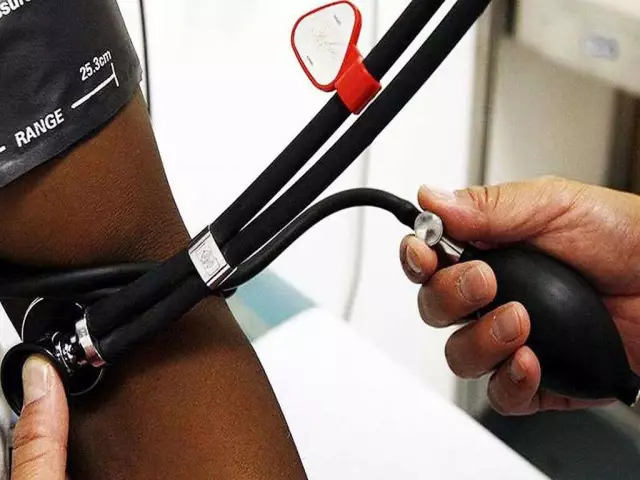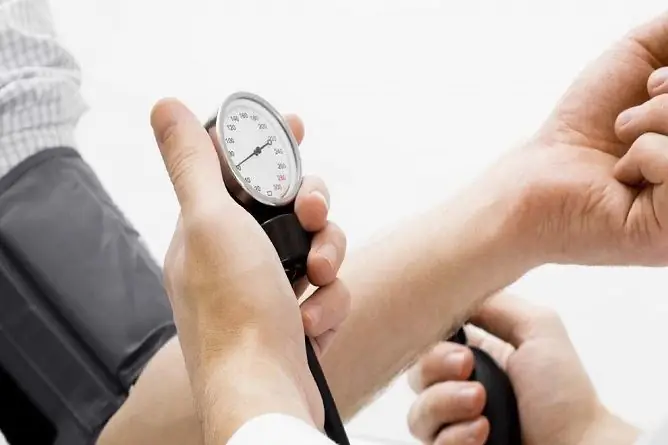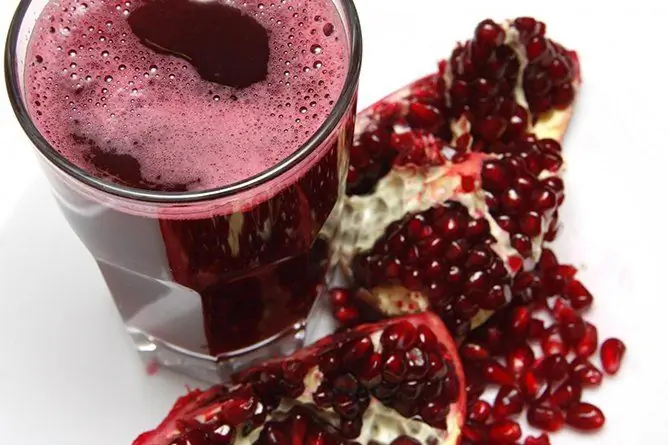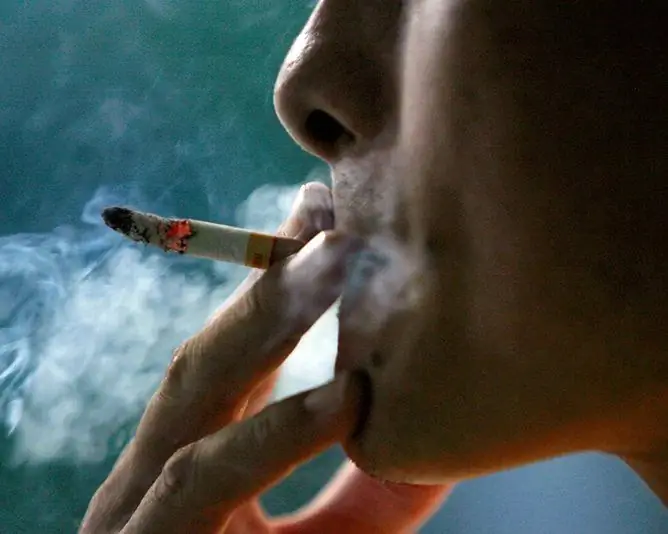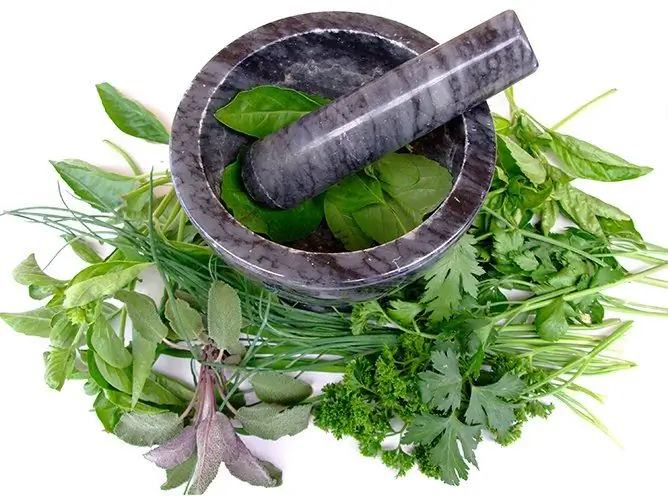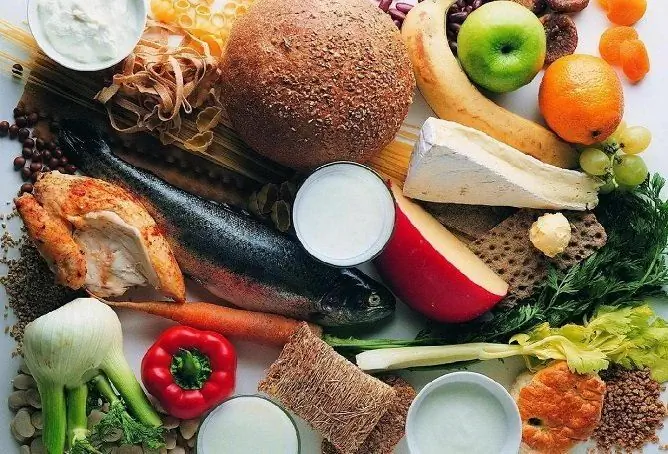- Author Rachel Wainwright wainwright@abchealthonline.com.
- Public 2023-12-15 07:39.
- Last modified 2025-11-02 20:14.
6 main causes of high blood pressure
According to statistics, every second inhabitant of the Earth is hypertensive. Those who suffer from high blood pressure need treatment with antihypertensive drugs, but sometimes it does not bring the expected result. In this situation, doctors talk about the so-called secondary hypertension, which arose on the basis of one of the pathologies that we want to talk about today.

Source: depositphotos.com
Violation of vascular tone
This is the case when hypertension is considered an independent disease (primary hypertension). Examination of a patient complaining of pressure surges includes an electrocardiogram, a clinical study of blood and urine, a biochemical blood test, as well as, if necessary, an ultrasound examination of internal organs and a chest X-ray.
If, as a result, a specific violation of the vascular tone characteristic of hypertension is found, drugs are prescribed that maintain blood pressure at an optimal level. In addition, the patient is selected a diet and exercise regime, which will gradually strengthen the walls of blood vessels.
Kidney disease
Disruption of the urinary system very often causes an increase in pressure. This happens when it is difficult to urinate or when the kidneys are not working properly.
Renal hypertension is characterized by the formation of soft areas of swelling on the face, hands and lower legs. At the same time, there is pain or burning sensation when urinating, frequent urge with minimal fluid secretion. Blood and urine tests show the presence of an inflammatory process.
In older men, bouts of hypertension can occur with exacerbation of prostatitis.
In any of these cases, treatment with antihypertensive drugs alone is ineffective. The patient needs therapy for the underlying ailment.
Hormonal disorders
Improper functioning of the endocrine glands leads to metabolic disorders, which, in turn, cause water-salt imbalance. The patient's blood composition changes, the load on the vessels increases.
An increase in blood pressure occurs when:
- Itsenko-Cushing's disease (damage to the adrenal cortex, causing excessive release of cortisol and ACTH);
- pheochromocytoma (a benign tumor of the adrenal glands, provoking an increased release of norepinephrine and adrenaline);
- Conn's syndrome (a tumor located in the adrenal gland that produces the hormone aldosterone);
- acromegaly (congenital pathology, accompanied by excessive production of the so-called growth hormone);
- hyperthyroidism (increased levels of thyroid hormones);
- hypothyroidism (deficiency of thyroid hormones);
- diabetic glomerulosclerosis (a pathological change in renal tissue caused by diabetes mellitus).
Each of these conditions has characteristic features that occur in parallel with bouts of hypertension.
Taking certain medications
Any drug that enters the body not only creates the expected therapeutic effect, but also causes changes in the work of almost all organs and systems. Some of these changes are manifested by a deterioration in well-being. No wonder they say that "drugs heal one, and another cripple."
An increase in blood pressure can be caused by taking non-steroidal anti-inflammatory drugs and cough medicines. Complaints of bouts of hypertension are not uncommon in people taking appetite suppressants.
Some common medications weaken the therapeutic effect of antihypertensive drugs, so hypertensive patients should be careful while taking medications for various diseases.
Improper nutrition
The list of foods that can increase blood pressure is long. It includes not only salted vegetables, fish and lard, but also food saturated with the so-called hidden salt: smoked sausages, some types of cheese, almost all canned food, meat semi-finished products. It is very easy to overload the body with salt and cause fluid stagnation, regularly consuming chips, snacks, crackers, and fast food is very dangerous in this regard.
An increase in pressure is provoked by coffee, beer, strong alcohol, sweet soda, energy drinks. The opposite effect is caused by drinks that have a natural (without the addition of synthetic organic acids) sour taste: light dry wine, berry fruit drinks, tea with lemon.
Spine problems
An increase in blood pressure can be caused by problems in the upper spine. Cervical osteochondrosis or the consequences of back injuries often cause an increase in muscle tone, which, in turn, leads to vasospasm; the blood supply to the brain suffers and attacks of hypertension appear. The main pathology in this case is easy to detect by making an X-ray of the spine.
Similar problems arise for healthy people who have to spend a lot of time in an improperly organized workplace. This is usually a sedentary job that requires excessive tension in the muscles of the neck and eyes. In such a situation, the pressure rises in the evening and decreases independently during the night's rest.
Primary (independent) hypertension is a disease of adults. In patients over the age of 40, it develops in 90% of cases. In the group from 30 to 39 years old, primary hypertension is diagnosed in 75% of patients. Among hypertensive patients who have not crossed the 30-year mark (including among children and adolescents), patients with primary hypertension are almost never found.
According to the standards developed by specialists of the World Health Organization, a hypertensive person is considered to be a person whose pressure regularly exceeds 140/90 mm Hg. Art. However, these parameters cannot be understood literally: the characteristics of each organism are individual and the indicators of the "working" (that is, optimal) pressure differ. In any case, you need to be attentive to your health and consult a doctor if the pressure rises suddenly, dizziness, nausea, and unpleasant heaviness in the back of the head occur. One cannot joke with such symptoms: they may turn out to be signs of a rapidly developing cerebrovascular accident.
YouTube video related to the article:

Maria Kulkes Medical journalist About the author
Education: First Moscow State Medical University named after I. M. Sechenov, specialty "General Medicine".
Found a mistake in the text? Select it and press Ctrl + Enter.

